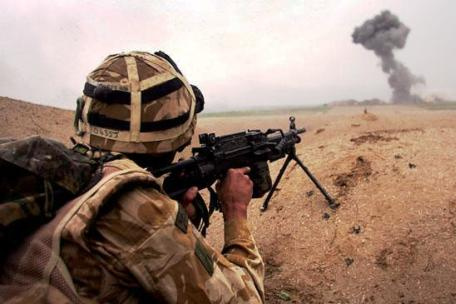Taliban-Washington Negotiations: Where are they heading to

IRD: What are Washington’s expectations from the war in Afghanistan? Dim fait is awaiting American soliders, victims of their leaders’ erroneous policies, who fueled Afghans’ hatred with their fatally incognizant act of burning the Muslim holy book of Quran in NATO’s Bagram military base. Whether it is invasion of Afghanistan, installation of Guantanomo prison camp or negotiations with the Taliban, United States’ policies regarding Afghanistan have failed to portray a promising prospect. More than a decade after invading Afghanistan, Americans are preparing to leave the matters at the hand of Afghans. The Bagram prison is to be concede to Afghanistan’s government, while five senior members of the Taliban now in detention in the Guantanomo camp are planned to be relocated to Qatar, the Persian Gulf intermediary which is also prepared to host Taliban’s political bureau. Iranian Diplomacy has interview Pir-Mohammad Mollazehi, an Afghan affairs analyst on the recent developments in Afghanistan and the turn in Washington’s policies:
IRD: American officials have agreed to hand the responsibility of the Bagram prison to the government of Afghanistan. What is your reading of their agreement?
PMM: Hamed Karzai had urged Washington to return the Bagram prison’s control to the Afghans, and in the meantime, there was the Quran-burning incident in NATO military base in Bagram which infuriated Afghans and the Muslim World and sparked unrest in several provinces of Afghanistan. Washington’s decision to hand the Bagram prison to the government could be a move to alleviate tension.
IRD: More than ten years have passed since the US-led occupation of Afghanista, and we are still witnessing turmoil in this country. Do you think that Washington has lost hopes, and is preparing for withdrawal?
PMM: I don’t think so. There are serious challenges, but assuming that frustrated Americans will abandon Afghanistan is baseless, and a projection by those who wish so. I think the US is going through a phase in Afghanistan which will end in remodeling their Vietnam experience, that is, Vietnamising the war. Washignton is going to sign a strategic pact with Hamed Karzai’s government and deploy its troops in a number of military bases across the country. This way it will curb further casualties and rein increasing military expenses.
It is not all about Afghanistan. The US is trying to control affairs in the region, and keep a close eye on China and Russia, control Iran, and regulate India’s behavior. I don’t think Americans are fed up with their Afghanistan mission or have decided to withdraw from the country.
IRD: What do you think of the talks to relocate five senior Taliban members from the Guantanomo prison camp to Qatar? How could they change the dynamics of Washington-Taliban ties?
PMM: Stealth negotiations between the US and Taliban have been going on for long. Releasing the Taliban members from Guantanomo, as one of Taliban’s stipulations, signals that the situation is being prepared for Taliban’s return to Afghanistan’s politics. Plus, it could be good publicity for Americans who face criticism for their human rights records in Guantanomo every now and then.
IRD: Do you think Washington’s incentives could encourage Taliban to make peace with the US and NATO and start politics from Doha?
PMM: Full agreement between the Taliban and Americans is unlikely. And even if it happens, it would be in the long run. Several factors may encourage the Taliban to make concessions. First of all, Pakistan’s government and army are under strong pressure to cut all ties with the Taliban. Pakistan’s top spy Ahmad Shuja Pasha has been dimissed and Prime Minister Yusuf Reza Gilani has introduced Zaheerul Islam to replace him. Islamabad seems unable to bear further pressure from Washington for its endorsement of Taliban.
In the meantime, the United States is offering tempting options to the Taliban, including an agreement to put the affairs in the Pashtun-dominated southeastern Afghanistan at the hands of the Taliban. This could be of course an opportunity for them to revive their network and prepare for redominating the entire Afghanistan. The Taliban know that there are no military options for them to retake Kabul, and they have to think of long-term political means. Even democracy may help them for this goal, considering that their ethnic base, Pashtun, comprises the majority of Afghan’s population.
IRD: Some Republicans are critical of Barack Obama’s decision to negotiate with Taliban. How do you assess the chances of an agreement between Obama and the Taliban?
PMM: I think that stems from domestic political rivalries. Republicans would most likely take the same path were they in power.
IRD: Where do you see the place of Hamed Karzai’s government in Washington’s negotiations with Afghanistan? How could things be different for Karzai after Taliban’s return to power?

